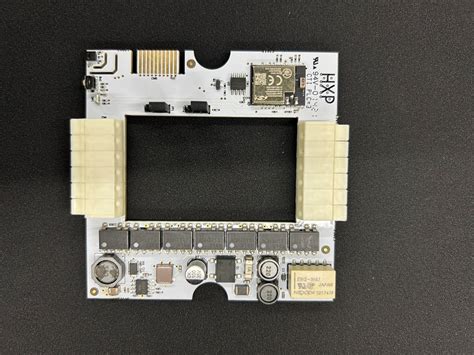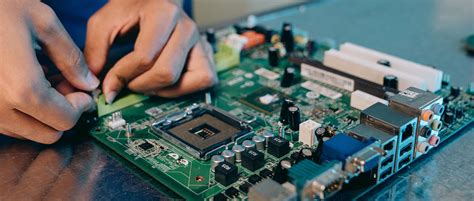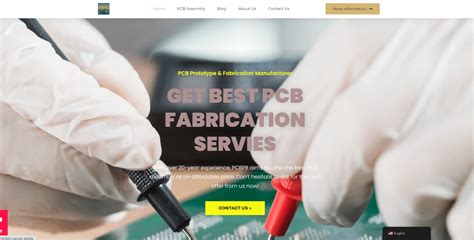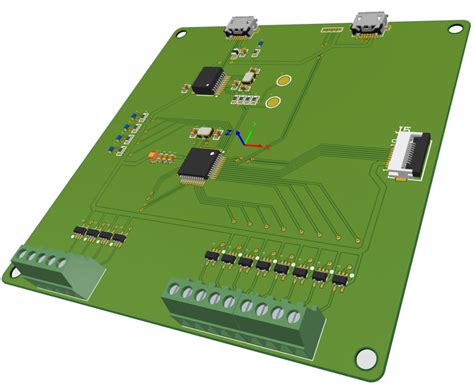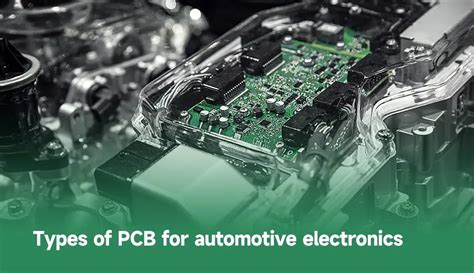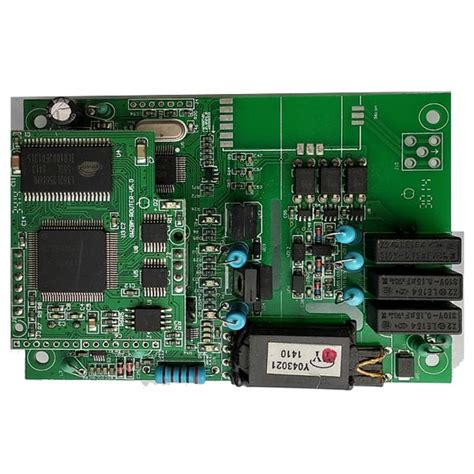UL-Certified PCB Manufacturers: Ensuring Quality and Compliance
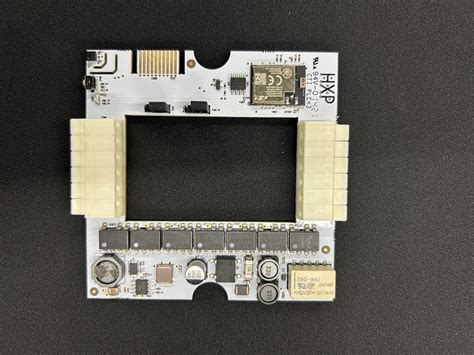
Key Takeaways
When selecting partners for PCB manufacturing, understanding certification impacts is crucial. UL certification verifies that PCB manufacturing companies adhere to rigorous safety protocols, reducing risks of component failure or non-compliance. This assurance becomes vital when balancing PCB manufacturing cost with long-term reliability—certified providers often minimize costly recalls or redesigns.
Tip: Always request UL certification documentation early in vendor discussions to avoid delays in product validation.
For businesses scaling their PCB manufacturing business, partnering with UL-certified suppliers streamlines compliance with global standards like IEC 60601 (medical devices) or IPC-A-610 (electronics assembly). Consider these factors when evaluating manufacturers:
| Criteria | UL-Certified | Non-Certified |
|---|---|---|
| Compliance Guarantee | Audited annually | Self-reported |
| Risk of Recalls | Low | Moderate to High |
| Market Accessibility | Global acceptance | Region-specific hurdles |
While PCB manufacturing cost may initially appear higher with certified partners, the reduced regulatory scrutiny and enhanced product longevity often justify the investment. Prioritize suppliers who transparently align their processes with industry-specific safety benchmarks to ensure your electronics meet evolving compliance demands.
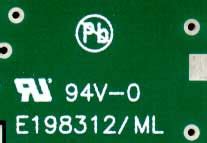
UL Certification in PCB Manufacturing
When selecting partners for PCB manufacturing, understanding the role of UL certification is critical. This certification verifies that products meet rigorous safety benchmarks, reducing risks of electrical hazards or failures in end-use applications. For PCB manufacturing companies, achieving UL compliance involves thorough testing of materials, design integrity, and production processes—factors that directly influence long-term reliability and regulatory acceptance.
The certification process evaluates key aspects like flammability resistance, thermal stability, and electrical insulation. These standards align with global requirements, ensuring your electronics comply with regions such as North America, Europe, and Asia. While PCB manufacturing cost may rise due to testing and material upgrades, the investment mitigates recalls, legal liabilities, and reputational damage. Global safety standards further reinforce why partnering with certified manufacturers is non-negotiable for high-risk industries like aerospace or medical devices.
For businesses scaling their PCB manufacturing business, UL certification serves as a competitive differentiator. It signals adherence to quality assurance protocols that buyers prioritize, streamlining procurement decisions. By collaborating with UL-certified partners, you gain access to technical documentation and traceability frameworks that simplify audits and compliance reporting—a strategic advantage in today’s regulated markets.
Global PCB Safety Standards Guide
When sourcing PCB manufacturing services, understanding global safety standards is crucial to ensure your products meet international requirements. Regulations like UL 94 (flammability), IEC 61249-2 (material quality), and IPC-6012 (performance criteria) form the backbone of safe electronics production. Reputable PCB manufacturing companies align their processes with these benchmarks, prioritizing material selection, traceability, and testing protocols to minimize risks of electrical failures or environmental hazards.
While adhering to strict standards may influence PCB manufacturing cost, it prevents costly recalls and reputational damage. For example, UL certification requires rigorous third-party audits of facilities, ensuring consistent quality control – a critical factor when scaling your PCB manufacturing business. Regional variations exist, however: the EU’s RoHS restricts hazardous substances, whereas China’s CCC certification emphasizes product safety. Partnering with manufacturers who proactively update compliance frameworks helps you navigate these complexities without compromising production timelines. Transparent documentation, including material safety data sheets (MSDS) and test reports, becomes your assurance of adherence to these evolving global mandates.
Choosing Reliable PCB Suppliers
When selecting partners for PCB manufacturing, prioritizing suppliers with proven adherence to global safety standards ensures your projects meet regulatory and quality benchmarks. PCB manufacturing companies with UL certification demonstrate rigorous testing protocols, material traceability, and consistent production controls—key factors in minimizing risks like electrical failures or compliance violations.
Cost considerations in PCB manufacturing cost should never overshadow reliability. While lower-priced options may seem appealing, uncertified suppliers often lack the infrastructure to address design complexities or scalability needs. Instead, evaluate suppliers holistically: assess their certifications, audit reports, and responsiveness to technical challenges. For instance, UL-certified partners typically invest in advanced processes that reduce long-term defects, indirectly lowering total ownership costs.
In the PCB manufacturing business, long-term partnerships hinge on transparency and adaptability. Prioritize vendors that offer clear documentation, such as material safety data sheets (MSDS) and failure analysis reports, to streamline your compliance workflows. Additionally, verify their capacity to align with evolving regulations, such as RoHS or REACH, to future-proof your supply chain. By balancing cost, quality, and compliance, you secure a foundation for electronics production that minimizes downtime and reinforces brand trust.
PCB Quality Assurance Standards
When sourcing from PCB manufacturing companies, understanding their quality assurance protocols ensures your electronics meet both performance and safety benchmarks. Rigorous quality assurance standards govern every phase of PCB manufacturing, from material selection to final inspection. Reputable suppliers implement automated optical inspection (AOI), X-ray testing, and functional testing to detect defects like soldering errors or trace misalignments. These processes minimize risks in high-volume production while balancing PCB manufacturing cost efficiency.
Adherence to international frameworks—such as IPC-A-600 for acceptability criteria or ISO 9001 for process consistency—ensures traceability and repeatability. For businesses prioritizing reliability, verifying that a PCB manufacturing business follows these protocols reduces downtime caused by faulty boards. Transparent documentation, including Certificates of Compliance (CoC) and material safety data sheets (MSDS), further validates adherence to industry-recognized practices. By aligning with partners who embed quality assurance into their workflows, you safeguard product longevity and compliance across global markets.
Electronics Compliance Standards
When sourcing PCB manufacturing services, understanding electronics compliance standards is crucial for ensuring your products meet global market requirements. These standards govern everything from material safety to electromagnetic compatibility, acting as safeguards against operational failures and legal risks. For PCB manufacturing companies, adherence to frameworks like UL, RoHS, and REACH isn’t optional—it’s a baseline expectation for competing in industries such as automotive, medical devices, or aerospace.
Compliance directly impacts PCB manufacturing cost, as certified suppliers invest in rigorous testing, traceable materials, and documentation systems. While this might raise initial expenses, it reduces long-term risks like recalls or non-compliance penalties. When evaluating PCB manufacturing business partners, prioritize those with transparent compliance histories—look for certifications audited by third parties rather than self-declared claims.
Key protocols like IPC-A-600 (acceptability of printed boards) and ISO 9001 (quality management) further complement safety standards, ensuring consistency across production batches. By aligning with partners who embed compliance into their workflows, you mitigate supply chain disruptions while building trust with end-users who rely on your products’ reliability.
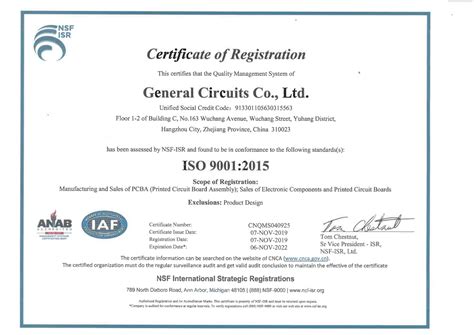
Benefits of UL-Certified PCBs
When sourcing PCB manufacturing services, opting for UL-certified providers ensures your electronics meet rigorous safety benchmarks. Global compliance isn’t just a checkbox—UL certification verifies that materials, design, and production processes align with international fire resistance, electrical safety, and environmental standards. This reduces risks of product recalls or failures, safeguarding your brand’s reputation.
For PCB manufacturing companies, achieving UL certification signals technical expertise and operational reliability. It streamlines approvals for markets like North America and Europe, where regulatory scrutiny is high. While PCB manufacturing cost may initially rise due to testing and compliance investments, long-term savings emerge through fewer defects, faster time-to-market, and access to premium clients prioritizing quality.
From a business perspective, partnering with UL-certified PCB manufacturing business partners strengthens supply chain transparency. You gain traceable documentation for every production batch, simplifying audits and ensuring consistency. This is critical for industries like medical devices or automotive electronics, where component failures carry severe consequences. By prioritizing certified suppliers, you align with partners committed to sustainable practices and risk mitigation, future-proofing your projects against evolving regulations.
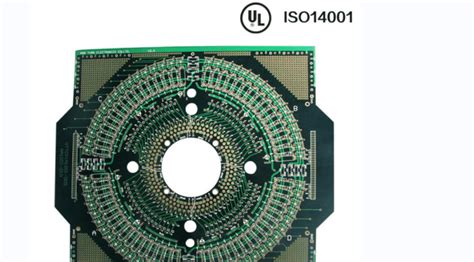
PCB Industry Regulatory Requirements
Navigating regulatory requirements is crucial when selecting partners for PCB manufacturing, as non-compliance risks product recalls and legal liabilities. You need suppliers that adhere to globally recognized standards like UL, IPC, and ISO, which govern everything from material flammability to electrical performance. For PCB manufacturing companies, compliance isn’t optional—it’s a baseline for market access. Regulations such as RoHS (Restriction of Hazardous Substances) and REACH (Registration, Evaluation, Authorization, and Restriction of Chemicals) dictate material choices, directly influencing PCB manufacturing cost through specialized sourcing and testing.
Your PCB manufacturing business must also account for regional variations—for example, the EU’s WEEE (Waste Electrical and Electronic Equipment) directive mandates recycling protocols, while the U.S. FDA imposes stricter controls for medical devices. Transitioning between these frameworks requires suppliers with robust documentation practices and traceability systems. By prioritizing partners that integrate compliance into their workflows, you mitigate risks and ensure seamless scalability, even as standards evolve. Remember: regulatory alignment isn’t just about avoiding penalties—it’s about building trust in your end products.
Trusted PCB Manufacturing Partners
When selecting PCB manufacturing companies, you need partners that align with your technical requirements and compliance goals. Trusted manufacturers balance PCB manufacturing cost efficiencies with rigorous quality controls, ensuring products meet international safety benchmarks. These partners often hold multiple certifications beyond UL listings, reflecting their commitment to supply chain transparency and risk mitigation.
A reliable PCB manufacturing business invests in advanced processes—like automated testing and traceability systems—to minimize defects and streamline production. By collaborating with such providers, you gain access to expertise in material selection, design optimization, and regulatory navigation, which directly impacts long-term project viability. However, not all suppliers prioritize compliance equally; verify their audit histories and client testimonials to confirm adherence to industry-specific protocols.
Transitioning between prototype phases and full-scale production requires partners who scale operations without compromising standards. This alignment becomes critical when managing PCB manufacturing timelines for complex assemblies or high-volume orders. Ultimately, trusted manufacturers act as extensions of your engineering team, delivering consistency across thermal performance, signal integrity, and environmental durability parameters.
Conclusion
When selecting partners for PCB manufacturing, prioritizing UL-certified PCB manufacturing companies ensures your projects align with globally recognized safety benchmarks. While PCB manufacturing cost remains a critical consideration, partnering with certified suppliers minimizes risks tied to non-compliance, reducing long-term expenses from redesigns or recalls. As you evaluate options, verify that their PCB manufacturing business integrates robust quality assurance protocols, from material sourcing to final testing. This not only safeguards your product’s reliability but also strengthens your brand’s reputation in markets demanding adherence to strict regulatory frameworks. Ultimately, choosing UL-certified manufacturers creates a foundation for scalable, compliant electronics production—a strategic advantage in today’s competitive landscape.
FAQs
Why is UL certification critical when selecting a PCB manufacturing partner?
UL certification ensures that PCB manufacturing companies adhere to globally recognized safety and performance standards. This reduces risks of electrical failures and ensures compliance with regulations like IEC and RoHS, which is vital for products entering international markets.
How do you verify if a supplier holds valid UL certification?
Always request the manufacturer’s UL file number and cross-check it on UL’s official database. Reputable PCB manufacturing businesses will transparently share certification details, along with test reports, to confirm adherence to quality benchmarks.
Does UL certification increase PCB manufacturing cost?
While initial costs may rise due to rigorous testing and material upgrades, certified processes minimize long-term expenses by reducing defects, recalls, or compliance penalties. Many PCB manufacturing providers optimize workflows to balance affordability with certification requirements.
What happens if your PCBs lack UL certification?
Non-compliant boards may face legal barriers in markets like North America or Europe. They also pose safety risks, potentially damaging your brand’s reputation. Partnering with UL-certified PCB manufacturing companies ensures long-term reliability and market access.
Can UL-certified manufacturers handle both prototypes and bulk orders?
Yes. Most certified suppliers offer scalable solutions, from low-volume prototypes to high-volume production, while maintaining consistent quality. Confirm their capacity during the quoting phase to align with your project’s scope.
Ready to Partner with Trusted UL-Certified PCB Manufacturers?
Ensure your electronics meet global safety standards by collaborating with experts. Click here to explore certified PCB manufacturing solutions tailored to your requirements.

